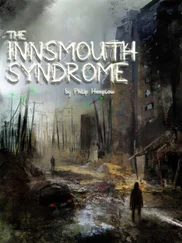I look at him in astonishment. How does he know such things? I had forgotten myself, if I ever knew, that Jo Ann had gone to Ole Miss, let alone that she was rush captain of Gamma.
“Come inside, Enrique.” I remember all too well what it is to have an unhappy daughter.
It takes ten minutes. I call Aunt Birdie in Vicksburg and Jo Ann at Oxford. Two or three words about Carmela being a darling girl, member of an ancient aristocratic Castilian and Prussian family, indeed one of the first fourteen families of El Salvador, a prime prospect whom they can’t afford to lose to the Chi O’s, and so on.
I hang up. “She’ll get her invitation this afternoon,” I tell Enrique.
“Oh, my dear friend! Jesus!” cries Enrique, leaping to his feet. There are actually tears in his eyes. I’m afraid he’s going to embrace me, so I shake hands quickly. He shakes with both of his. “You name it, Doctor! Anything!”
“My pleasure, Enrique.” It is. Such matters can be serious. I can’t stand to see a child, any child who sets her heart on it, get blackballed by the sisters, who can in fact be as mean to one another as yard dogs.
But my interest in Enrique lies elsewhere. It is the change in him. Imagine a Central American who’s lost interest in politics! Who knows all about Ole Miss sororities!
On the way out I ask him casually where San Cristóbal is — San Cristóbal, the town in Chiapas, Mexico, where his family first settled. If I’d asked him two years ago, asked him anything about Mexico, he’d have got going on the Mexicans, whom he dislikes, but now he merely closes his eyes.
“Oh, I’d say it’s about three hundred miles northwest of Santa Anna.” Santa Anna is the place where he lived on his finca in El Salvador. He doesn’t even ask me why I wanted to know. He’ll tell me anything, give me anything.
I ask him if he will come in next week for a couple of tests — I tell him I want to see if he’s as healthy as he looks. What I really want is a CORTscan.
“My pleasure, Doc,” says Enrique, trying out his interlocking grip on an imaginary club, swinging as easily as Sam Snead.
CASE HISTORY #2
Here is Ella Murdoch Smith.
Her problem used to be failure and fright. “I can’t cope,” she once told me quietly. “It’s too much. What happens when people can’t cope? Is there a place to go, some government program for people who just can’t cope any longer?” she asked ironically but seriously. I told her I didn’t know of any such program. “But this is ridiculous,” she said. “Have you ever heard of a card game where you’re dealt a hand, a losing hand, and you’re stuck with it, can’t turn it in, can’t fold and draw a new card, and you’re stuck with it the rest of your life?” I admitted I had never heard of such a game. “You’re right,” she said. “There is no such game. I want to fold this hand.” I took her threat of suicide, of folding her hand for good, seriously.
Her husband had left her with two small children. She had to go to work. An educated woman, she had no particular skills and had a hard time holding down a job, taking care of the children, running the house. She became frightened.
I looked at her. That was three years ago. What was remarkable about her was that here she was, a handsome, formidable woman with heavy breasts, youngish but with hair gone prematurely iron-gray and done up in two heavy braids — and shaking like a leaf. She had been frightened for months.
Frightened of what? Failure? Not according to her. One might have thought she had enough ordinary troubles to frighten anybody. But she had her own theory. She read books on psychology. She misread Freud. Her theory was that she had a strong sexual drive, that it was not being satisfied, and that in consequence she became anxious. So anxious she couldn’t cope.
As the older Freud would have told you, it’s not that simple.
I think I helped her. I only saw her a few weeks. There was not enough time or money for a proper analysis. But we made some progress.
The young Freud might have partly agreed with her — of course, it was the other way around, she was agreeing with Freud. Suppressed or unfulfilled sexual needs translate into anxiety, etc. Now I don’t know how it was with the middle-class Viennese Hausfrauen Freud saw as patients. Maybe he was right about them. But he was not right about Ella. As a matter of fact, she satisfied her needs and drives, as she called them, had an affair with one of her bosses, a chicken farmer — and became more frightened than ever. She actually wrung her hands and cried, her face going red as a child’s between her heavy iron-gray braids.
I began to notice something about her. The only times she was not frightened were when she carried off some little performance, a gesture which seemed to her to be “right,” that is, sufficiently graceful, clever, savvy, warranted, that it pleased her and me. I never cease to be amazed at the number of patients who are at a loss or feel crazy because they don’t know what to do from one minute to the next, don’t think they do things right — I don’t mean right in the moral sense, but right in the way that people on TV or in books or movies always do things right. Even when such actor-people do wrong, go nuts, they do it in a proper, rounded-off way, like Jane Fonda having a breakdown on TV. “I can’t even have a successful nervous breakdown!” cried Ella, wringing her hands. She thought she had to go nuts in a poetic way, like Ophelia singing sad songs and jumping in the creek with flowers in her hair. How do I know what to do, Doctor? Why can’t you tell me? What I want to tell them is, this is not the Age of Enlightenment but the Age of Not Knowing What to Do.
One day she carried off a charming little gesture and I noticed that it pleased her very much. She showed up with copies of Feliciana Farewell, the yearbook of our high school — yes, she had discovered that we had attended the same high school here and the same university in North Carolina. She opened the two books to show me her picture and mine — yes, we had both been editor of the yearbook. She gave me the yearbooks. It pleased her. She stopped trembling.
We talked about failure. What is failure? Failure is what people do ninety-nine percent of the time. Even in the movies: ninety-nine outtakes for one print. But in the movies they don’t show the failures. What you see are the takes that work. So it looks as if every action, even going crazy, is carried off in a proper, rounded-off way. It looks as if real failure is unspeakable. TV has screwed up millions of people with their little rounded-off stories. Because that is not the way life is. Life is fits and starts, mostly fits. Life doesn’t have to stop with failure. Not only do you not have to jump in the creek, you can even take pleasure in the general recklessness of life, as I do, a doctor without patients sailing paper P-51s at a martin house. I am a failed but not unhappy doctor.
I took her hints of suicide—“I don’t have to play this hand,” etc. — seriously. We spoke of failure and she got better. I can’t claim a cure, but she got better. She showed some initiative, stopped wringing her hands, moved to Nags Head on the Outer Banks of North Carolina, got a job teaching school, put her children in the excellent public school system of North Carolina, and even began writing poetry. She sent me a postcard showing the beach and the dunes of Kitty Hawk. It read: “Did you ever walk on a beach in December in a gale. The winter beach is lovely.” Later she sent me a poem she wrote called “Spindrift,” about the spindrift of the waves being like the spindrift of the heart, etc.
Now, admittedly there is still some cause for alarm here: Ella setting too much store by walking on a winter beach and writing a poem about spindrift. There are at least a thousand women poets in America, mostly in California and New England, who walk on beaches and write poems about spindrift, spindrift of the waves, spindrift of the heart. Beware of women poets who write about spindrift. There is a certain peril in this enterprise. She could easily shoot herself down. The winter beach and the spindrift, relied on too much, could let you down. But at least I understood her and she me. We transmit on the same wavelength. She was functioning, living, not trembling, taking herself less seriously, had come to terms with failure. Her children were doing well in school, were happy, had not yet fallen prey to the miseries of adulthood.
Читать дальше












